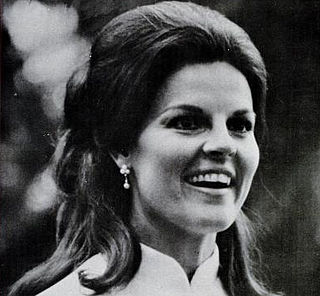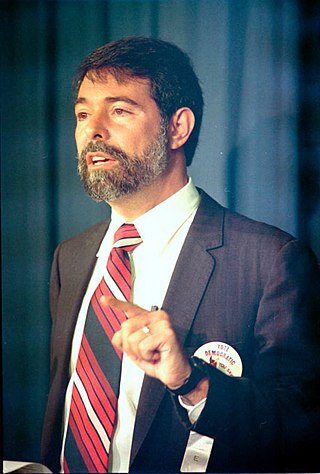
Lesbian, gay, bisexual, and transgender (LGBT) movements are social movements that advocate for LGBT people in society. Although there is not a primary or an overarching central organization that represents all LGBT people and their interests, numerous LGBT rights organizations are active worldwide. The first organization to promote LGBT rights was the Scientific-Humanitarian Committee, founded in 1897 in Berlin.
Anti-LGBT rhetoric comprises themes, catchphrases, and slogans that have been used in order to demean lesbian, gay, bisexual, and transgender (LGBT) people. They range from the demeaning and the pejorative to expressions of hostility towards homosexuality which are based on religious, medical, or moral grounds. It is a form of hate speech, which is illegal in countries such as the Netherlands, Norway, and Sweden.
Heterosexism is a system of attitudes, bias, and discrimination in favor of heterosexuality and heterosexual relationships. According to Elizabeth Cramer, it can include the belief that all people are or should be heterosexual and that heterosexual relationships are the only norm and therefore superior.

Anita Jane Bryant is an American singer. She had three Top 20 hits in the United States in the early 1960s. She was the 1958 Miss Oklahoma beauty pageant winner, and a brand ambassador from 1969 to 1980 for the Florida Citrus Commission.
This is a list of notable events in the history of LGBT rights that took place in the year 1976.

Alan Bray was a British historian and gay rights activist. He was a Roman Catholic and had a particular interest in Christianity's relationship to homosexuality.

LGBT rights opposition is the opposition to legal rights, proposed or enacted, for lesbian, gay, bisexual, and transgender (LGBT) people. Laws that LGBT rights opponents may be opposed to include civil unions or partnerships, LGBT parenting and adoption, military service, access to assisted reproductive technology, and access to sex reassignment surgery and hormone replacement therapy for transgender individuals.

Lesbian, gay, bisexual, and transgender (LGBT) people in Ethiopia face significant challenges not experienced by non-LGBT residents. Both male and female types of same-sex sexual activity are illegal in the country, with reports of high levels of discrimination and abuses against LGBT people. Ethiopia has a long history of social conservatism and same-sex sexual activity is considered a cultural taboo.
Fruit, fruity, and fruitcake, as well as its many variations, are slang or even sexual slang terms which have various origins. These terms have often been used derogatorily to refer to LGBT people. Usually used as pejoratives, the terms have also been re-appropriated as insider terms of endearment within LGBT communities. Many modern pop culture references within the gay nightlife like "Fruit Machine" and "Fruit Packers" have been appropriated for reclaiming usage, similar to queer.
This is a list of notable events in the history of LGBT rights that took place in the 1970s.
William Dale Jennings was an American LGBT rights activist, playwright and author.

Save Our Children, Inc. was an American political coalition formed in 1977 in Miami, Florida, to overturn a recently legislated county ordinance that banned discrimination in areas of housing, employment, and public accommodation based on sexual orientation. The coalition was publicly headed by celebrity singer Anita Bryant, who claimed the ordinance discriminated against her right to teach her children biblical morality because the ordinance specifically required parochial Christian schools, like the one her children attended, to hire openly homosexual teachers. It was a well-organized campaign that initiated a bitter political fight between gay activists and Christian fundamentalists. When the repeal of the ordinance went to a vote, it attracted the largest response of any special election in Dade County's history, passing by a more than 2-to-1 margin. In response to this vote, a group of gay and lesbian community members formed Pride South Florida, now known as Pride Fort Lauderdale, an organization whose mission was to fight for the rights of the gay and lesbian community in South Florida.
The Houston LGBTQ+ Political Caucus is the South's oldest civil rights organization dedicated solely to the advancement of gay, lesbian, bisexual and transgender rights. It was founded in 1975, and is the largest LGBTQ political organization in the city of Houston and Harris County. It is known locally simply as "The Caucus". The Caucus is nonpartisan and endorses candidates on the basis of their support for LGBTQ rights, regardless of political party or candidate's sexual orientation.
This article concerns LGBT history in Florida.

Discrimination against gay men, sometimes called gayphobia, is a form of homophobic prejudice, hatred, or bias specifically directed toward gay men, male homosexuality, or men who are perceived to be gay. This discrimination is closely related to femmephobia, which is the dislike of, or hostility toward, individuals who present as feminine, including gay and effeminate men. Discrimination against gay men can result from religion, prejudicial reactions to one's feminine mannerisms, styles of clothing, and even vocal register. Within the LGBT-community, internalized issues around meeting social expectations of masculinity have been found among gay, bisexual, and transgender men. Gayphobia is misandry that intersects with homophobia. It is analogous to lesbophobia.

The following outline offers an overview and guide to LGBT topics.

Bob Kunst is an American gay rights activist and perennial candidate.
Homosexual seduction is the pseudoscientific conspiracy theory which suggests homosexuality is spread through intergenerational sex, and that older homosexuals aim to change the sexual orientation of previously heterosexual youth by seducing them. It is related to the LGBT grooming conspiracy theory, the discredited acquired homosexuality theory, the gay agenda conspiracy theory, and the drag panic phenomenon.

Jimmy Raymond Allen was an American pastor and President of the Southern Baptist Convention (SBC) from 1977 to 1979. As president of the SBC, Allen was noted for his moderation and commitment to compassion in the church and was the last president before the SBC's conservative resurgence. After leaving his post as president, he continued to serve in the SBC before eventually becoming involved in other baptist organizations.
The notion that LGBT people, or those supportive of LGBT rights, are engaging in child grooming and enabling child sexual abuse is a far-right conspiracy theory and anti-LGBT trope. This claim has been pushed by a growing number of mainstream conservatives, particularly in the United States and English-speaking world.









